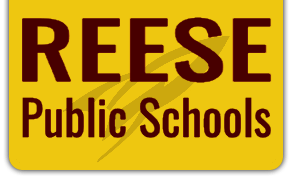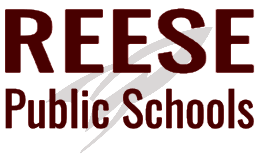SERIES 3000: OPERATIONS, FINANCE, AND PROPERTY
3100 General Operations
3115A Definitions for 3115 Series
A. The following definitions apply to policies 3115-3115H, 4101, 4102, and 5202, which address non-discrimination, anti-harassment, and non-retaliation:
1. “Appeals Officer” means a person who is designated to hear a determination appeal or a dismissal appeal. The Appeals Officer may not be the same person as the Coordinator, Decisionmaker, Investigator, or Informal Resolution Facilitator.
2. “Complainant” means: (1) a student or employee who is alleged to have been subjected to conduct that could constitute Unlawful Discrimination; or (2) a person other than a student or employee who is alleged to have been subjected to conduct that could constitute Unlawful Discrimination and who was participating or attempting to participate in the District’s education program or activity at the time of the alleged Unlawful Discrimination.
3. “Complaint” means an oral or written request to the District that objectively can be understood as a request for the District to investigate and make a determination about alleged Unlawful Discrimination.
4. “Coordinator” means the person(s) designated by the District to coordinate the District’s compliance with state and federal non-discrimination laws. The Coordinator may be the same person as the Investigator and Decisionmaker.
5. “Day” means a day that the District’s central office is open for business, unless otherwise indicated.
6. “Decisionmaker” means the person designated to issue a determination as to whether Unlawful Discrimination occurred. The Decisionmaker may be the same person as the Coordinator and Investigator.
7. “Disciplinary Sanctions” means consequences imposed on a Respondent following a determination that the Respondent engaged in Unlawful Discrimination.
8. “Grievance Procedure” means the process outlined in Policy 3115E.
9. “Informal Resolution Facilitator” means the person designated to facilitate an informal resolution process. The Informal Resolution Facilitator may not be the same person as the Investigator or the Decisionmaker.
10. “Investigator” means the person designated to investigate a complaint of Unlawful Discrimination. The Investigator may be the same person as the Coordinator and Decisionmaker.
11. “Key Role” means Coordinator, Investigator, Decisionmaker, Informal Resolution Facilitator, or Appeals Officer.
12. “Party” means a Complainant or Respondent.
13. “Remedies” means measures provided, as appropriate, to a Complainant or any other person the District identifies as having had their equal access to the District’s education program or activity limited or denied by Unlawful Discrimination. These measures are provided to restore or preserve that person’s access to the District’s education program or activity after the District determines that Unlawful Discrimination occurred.
14. “Respondent” means a person who is alleged to have violated the District’s prohibition on Unlawful Discrimination.
15. “Retaliation” means intimidation, threats, coercion, or discrimination against any person by the District, a student, or an employee or other person authorized by the District to provide aid, benefit, or service under the District’s education program or activity, for the purpose of interfering with any right or privilege secured by the 3115 Policy Series, or because the person has reported information, made a complaint, testified, assisted, or participated or refused to participate in any manner in an investigation, proceeding, or hearing under the 3115 Policy Series. Retaliation does not include a requirement that a District employee participate in a Grievance Procedure.
16. “Supportive Measures” means individualized measures offered as appropriate, as reasonably available, without unreasonably burdening a Complainant or Respondent, not for punitive or disciplinary reasons, and without fee or charge to the Complainant or Respondent to:
a. Restore or preserve that Party’s access to the District’s education program or activity, including measures that are designed to protect the safety of the Parties or the District’s educational environment; or
b. Provide support during the District’s Grievance Procedure or during an informal resolution process.
17. “Unlawful Discrimination” means to treat a person differently or less favorably due to the person’s race, color, national origin, ethnicity, religion, sex (including gender identity or expression, sexual orientation, or pregnancy), age, height, weight, familial status, marital status, military service, veteran status, genetic information, disability, or any other legally protected basis or any other legally protected class, and includes unlawful harassment and retaliation based on a person’s membership in a protected classification.
B. Examples of Unlawful Harassment
Unlawful harassment may include, but is not limited to:
1. Race, Color, or National Origin Harassment, which is prohibited by Title VI and Title VII of the Civil Rights Act of 1964 and the Michigan Elliott-Larsen Civil Rights Act. Race, color, or national origin harassment is unwelcome conduct based on a person’s actual or perceived race, color, or national origin that creates a hostile environment or becomes a condition of continued employment. Race includes traits historically associated with race, including, but not limited to, hair texture and protective hairstyles. Race, color, or national origin harassment may take many forms, including slurs, taunts, stereotypes, or name-calling, as well as racially motivated physical threats, attacks, or other hateful conduct.
Under this Policy, harassment based on ethnicity, ancestry, or perceived ancestral, ethnic, or religious characteristics, will be considered race, color, or national origin harassment.
2. Disability Harassment, which is prohibited by the Americans with Disabilities Act, Section 504 of the Rehabilitation Act of 1973, and the Michigan Persons with Disabilities Civil Rights Act. Disability harassment is unwelcome conduct based on a person’s actual or perceived disability that creates a hostile environment or becomes a condition of continued employment. Disability harassment may take many forms, including slurs, taunts, stereotypes, or name-calling, as well as disability motivated physical threats, attacks, or other hateful conduct.
3. Sex-Based Harassment, which is prohibited by Title IX of the Education Amendments of 1972, Title VII of the Civil Rights Act of 1964, and the Michigan Elliott-Larsen Civil Rights Act, and includes harassment based on sex, sex stereotypes, sex characteristics, pregnancy, sexual orientation, and gender identity. Title IX sexual harassment is governed by Policy 3118.
Legal authority: 20 USC 1400 et seq., 1681 et seq.; 29 USC 206 et seq., 621 et seq., 701 et seq., 794, 2601 et seq., 6101 et seq.; 38 USC 4301 et seq.; 42 USC 1983, 2000d et seq., 2000e et seq., 2000ff et seq., 6101 et seq., 12101 et seq.; 29 CFR 1604.1 et seq., 1635; 34 CFR 106.1, et seq.; MCL 37.1101 et seq., 37.2101 et seq.
Date adopted: 7/16/2024
Date revised: 3/10/2025


